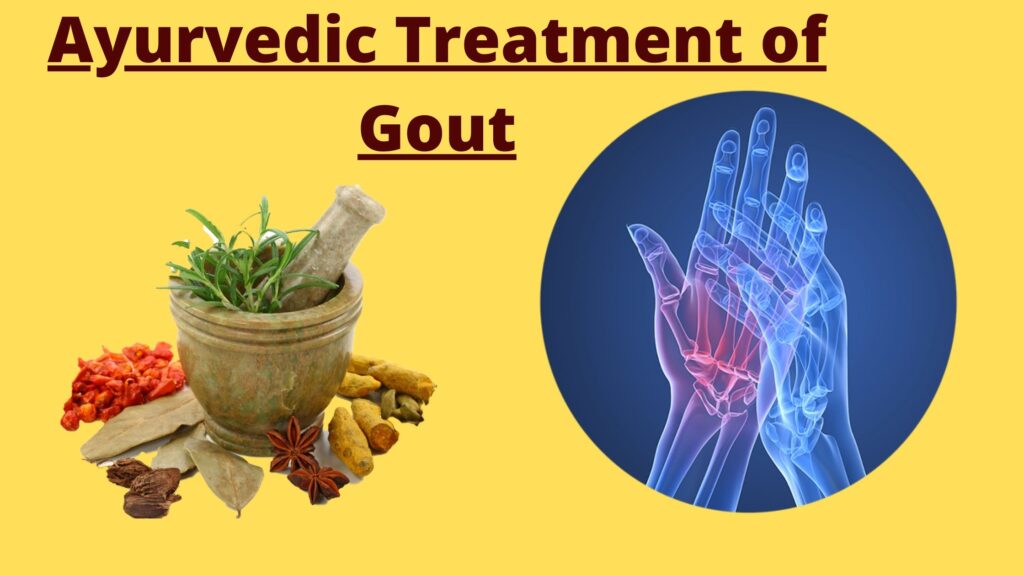Home remedies for gout – What is Gout: Gout is the most common type of inflammatory arthritis that causes swelling, tenderness, intense pain, and stiffness in a joint that results from an excess of uric acid in the blood and is usually affects the joints in the big toe. But in Ayurveda acute as well as chronic condition of gout can be cured with the home remedies for gout.
Uric acid is a type of chemical and present in the body when it digests and breaks down certain substances in food called purines. Although this condition most often affects the big toe, other joints may also be affected, including other joints in your feet, Ankles, Knees, Elbows, Wrists, and Fingers.
Gout commonly attacks at the end of legs and arms, such as in your fingers, and toes and this occurs because these parts of the body are cooler and cool, or low temperatures will make it more likely for crystals to form.
Table of Contents
Causes and Risk Factors of Gout:
Gout is surely occurring if you have a high level of uric acid in the body. But some other conditions may be the risk factors, some of them are given below:
- Family history: If your parents or other family member had suffered from gout, you’re more likely to develop the disease.
- Sex: Gout affects men more than women by a ratio of about 3 to 1. This condition occurs more often in men, primarily because women tend to have lower uric acid levels. In females, this condition will arise after menopause.
- Age: Men are more prone usually between the ages of 30 and 50, whereas women generally develop signs and symptoms after menopause.
- Obesity: If you’re overweight, there is an accumulation of toxins and lead to the formation of uric acid, and your kidneys have a more difficult time eliminating uric acid. The condition of overweight also makes it more likely that you’ll have: high blood pressure, type 2 diabetes, high cholesterol, fats in your blood.
- Diet: A person who eats a diet that is rich in seafood, meat, and drinking beverages sweetened with fruit sugar (fructose), high amount of alcohol, increase levels of uric acid, which increases your risk of gout.
- Medical illness: Certain conditions and diseases can increase your risk of gout. These include untreated high blood pressure and chronic conditions such as metabolic syndrome, diabetes, kidney, and heart diseases.
- Certain medications: Regular use of thiazide diuretics — commonly used to treat hypertension, and low – dose aspirin also can lead to the formation of uric acid and increases the risk of gout.
- Any surgery or trauma: Experiencing recent surgery or trauma has been associated with an increased risk of developing a gout attack.
Symptoms of Gout:
The signs and symptoms of gout occur suddenly and become severe often at night.
Some common symptoms are:
- Redness
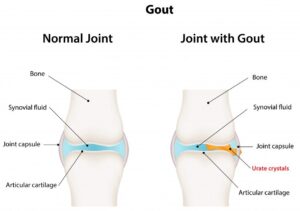
- Limited range of motion
- Swelling
- Intense joint pain
- Tenderness
- Mild burning sensation
Ayurvedic Point of View:
In Ayurveda, gout is termed as ‘Vatarakta’. Vatarakta is also known by the synonyms like Kuddha, Vata Balasa, and Adya Vata.
In Ayurvedic texts, it is described as:
कृत्स्नं रक्तं विदहत्याशु तच्च, दुष्टं स्रस्तं पादयोश्चीयते तु ।
तत्संपृक्तं वायुना दूषितेन तत्प्राबल्यादुच्यते वातरक्तम्
It indicates, Vatarakta is one of the unique disorders among the Vatavyadhi (a group of nervous disorders) which is the result of avarana of vata dosha by vitiated rakta (blood) dhatu (tissue).
Causes of Gout According to Ayurveda:
 There are various reasons written in Ayurvedic texts by which the doshas get aggravated and can lead to the formation of Vatarakta. Common causes are given below:
There are various reasons written in Ayurvedic texts by which the doshas get aggravated and can lead to the formation of Vatarakta. Common causes are given below:
- Excessive consumption of unctuous, or oily foods (snigdha ahara)
- Excessive consumption of hot foods (ushna ahara)
- Consumption of food in the presence of indigestion or when the previously taken food has not been digested (ajeerna bhojan)
- Excessive consumption of dry foods (shushka bhojan)
- Excessive consumption of meat of animals living in marshy areas (anupa mamsa)
- Mutually incompatible foods (viruddha ahara)
- Excessive intake of food, frequently (adhyashana)
- Anger (Krodha)
- The regular habit of sleeping during the daytime (diwaspana)
- Wrong choices of foods (mithya ahara)
- Excessive consumption of salts or salty foods (lavan dravya)
- Excessive consumption of sour foods (amla dravya)
- Excessive consumption of pungent foods (katu dravya)
- Excessive consumption of alkaline foods (kshara dravya)
Pathogenesis According to Ayurveda:
When an individual takes excessive foods and exposes to lifestyle activities that aggravate Vata and also is used to long-distance rides on animals like horses, elephants, camels, the vata dosha gets severely aggravated by its own causes.
On the other hand, high consumption of amla, lavana, katu, kshsra, etc., vitiates rakta or blood. The aggravated rakta obstruct the passages of Vayu and interferes with its smooth movements. The aggravated Vata dosha further contaminates the rakta or blood. The blood vitiated by aggravated vayu later burns the whole blood in the body, and leaves its place and gravitates towards the foot. This phenomenon of vitiated vata and rakta can lead to the formation of Vatarakta.
Types Gout According to Ayurveda:
In Ayurveda, the major four types of vatarakta are mentioned, a description is given below:
- Vata pradhana Vatarakta – When Vata dosha is aggravated, a person can suffer from needle pricking type pain, twitching, swelling which is dry and black, stiffness of body parts, etc.
- Pitta pradhana Vatarakta – When Pitta dosha gets imbalanced, symptoms are severe burning sensation, sweating, fainting, thirst, tenderness, pain, swelling, etc.
- Kapha pradhana Vatarakta – When Kapha dosha gets aggravated and vitiated in Vatarakta severely, the symptoms like numbness, heaviness, moistness, unctuousness, and coldness, etc.
- Rakta pradhana Vatarakta – When Rakta is severely vitiated in Vatarakta, the symptoms like swelling, severe pain, burning sensation, redness of the joints, skin become copper color, sometimes itching and discomfort is faced by a person.
Some Acharyas described the types of vatarakta upon the locality:
- Uthana Vatarakta (superficial) – It is located in the skin, as well as muscle tissues, and
- Gambheera Vatarakta (deep-seated) – This type is located in deeper tissues.
Symptoms of Gout According to Ayurveda:
Symptoms will occur according to the dominant dosha, which is described below:
Vataj laksnana:
- Colic pain (shula)
- Throbbing pain (sphurna)
- Pricking pain (todanam)
- Blackness, dryness, and brownish coloration of edema (karshnyam, raukdhyam, shyavata shota)
- Increase and decrease of the edema (vridhi hanayath soth)
- Stiffness of the limbs (anga graha)
- Excessive pain (ati ruka)
Pittaj lakshana:
- Intoxication (mada)
- Dizziness (bhrama)
- Redness (raga)
- Suppuration and burning open of the afflicted joints (paka)
- Emaciation of the afflicted limb (shosha)
- Burning sensation (vidaha)
- Pain (vedana)
- Sweating (sweda)
- Fainting (murcha)
Kaphaja lakshana:
- Numbness (supti)
- Indolence (staimitya)
- Heaviness (gauravata)
- Unctuousness (ati sneha)
Home Remedies For Gout:
A person can use some common home remedies along with home remedies for gout to get relief from pain, stiffness, redness, inflammation, etc. As the ingredients are common and easily available, this can be used by every individual.
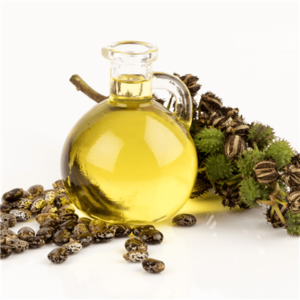 Castor Oil: Castor oil is considered as the best home remedy for gout as it will help in improving the proper blood flow, and it acts as natural anti-inflammatory properties that help in reducing inflammation, redness, stiffness, etc.
Castor Oil: Castor oil is considered as the best home remedy for gout as it will help in improving the proper blood flow, and it acts as natural anti-inflammatory properties that help in reducing inflammation, redness, stiffness, etc.
How to use: A person can apply lukewarm castor oil and massaging it on the affected area or just dabbing it with a cotton ball. This procedure will help in breaking down the toxic deposit and relieving redness and pain.
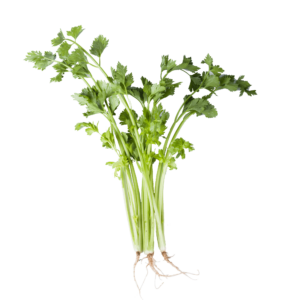 Coriander: Coriander herb is commonly used by every individual and it helps in improving the gastrointestinal tract with its antioxidant properties, thus decreasing uric acid level. If a person drinks adequate amounts of water too it can work wonders in stabilizing uric acid levels in the body.
Coriander: Coriander herb is commonly used by every individual and it helps in improving the gastrointestinal tract with its antioxidant properties, thus decreasing uric acid level. If a person drinks adequate amounts of water too it can work wonders in stabilizing uric acid levels in the body.
How to Use: Take a few sprigs of coriander and mix it in a glass of water and consume daily. Or you can add it to your food as a garnish and have it.
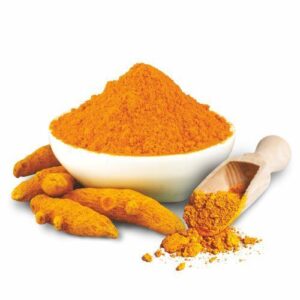 Turmeric: Turmeric is the best Ayurvedic herb and is believed to have lots of potential medicinal value. It suppresses chronic inflammation, which reduces the activity of Xanthine oxidase (an enzyme that produces uric acid).
Turmeric: Turmeric is the best Ayurvedic herb and is believed to have lots of potential medicinal value. It suppresses chronic inflammation, which reduces the activity of Xanthine oxidase (an enzyme that produces uric acid).
How to use: Turmeric can be consumed by mixing a teaspoon of it in lukewarm water and drink it daily.
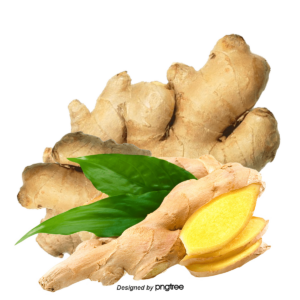 Ginger – Ginger is well known for its anti-inflammatory, anti-bacterial properties. Ginger combines with carom seeds it helps in removing the uric acid from the body. Moreover, this remedy helps in relieving pain and swelling.
Ginger – Ginger is well known for its anti-inflammatory, anti-bacterial properties. Ginger combines with carom seeds it helps in removing the uric acid from the body. Moreover, this remedy helps in relieving pain and swelling.
How to use: You have to take 1 Tbsp ajwain and a 1-inch slice of ginger, boil with a cup of water. Strain the decoction and consume half of it in the morning, and the other half in the evening daily.
 Apple cider vinegar – It is acidic in nature and helps in treating the pain, reduces inflammation, redness, tenderness, etc.
Apple cider vinegar – It is acidic in nature and helps in treating the pain, reduces inflammation, redness, tenderness, etc.
How to use – Drink 1 glass of water mixed with 1 teaspoon of apple cider vinegar daily to overcome the symptoms of gout.
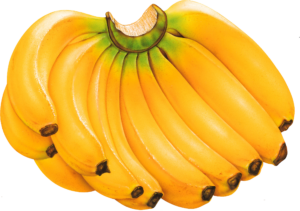 Banana: Banana fruit is rich in potassium and converts the uric acid crystals into liquid form inside our body which makes it easier to be rushed out with urine. It also contains high amounts of vitamin C content which is very useful in reducing the pain, swelling, tenderness, and other associated symptoms of gouty arthritis.
Banana: Banana fruit is rich in potassium and converts the uric acid crystals into liquid form inside our body which makes it easier to be rushed out with urine. It also contains high amounts of vitamin C content which is very useful in reducing the pain, swelling, tenderness, and other associated symptoms of gouty arthritis.
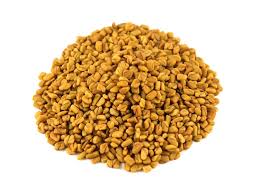 Fenugreek seeds: Fenugreek seeds are considered as the best home remedy for gout as it has a high level of antioxidants, and anti-inflammatory properties that work wonder in reducing the symptoms of gout. Regular consumption of fenugreek seeds reduces internal as well as external inflammation of the body.
Fenugreek seeds: Fenugreek seeds are considered as the best home remedy for gout as it has a high level of antioxidants, and anti-inflammatory properties that work wonder in reducing the symptoms of gout. Regular consumption of fenugreek seeds reduces internal as well as external inflammation of the body.
How to use: Soak 1 Tbsp fenugreek seed in half cup water overnight and drink that water early in the morning and chew the soaked seeds.
Diet and Lifestyle Modifications (Home Remedies For Gout):
Additionally, with the Home Remedies For Gout, a person has to change its lifestyle changes. It is very helpful to control uric acid levels in the blood, which leads to gout attacks. Lifestyle recommendations include:
- Avoid excess use of alcoholic beverages, especially beer and high-fructose drinks, which include sugar-sweetened soda and sweetened juice.
- Being overweight or obese is a great risk factor for developing gout, but if you already suffered from this, keeping a healthy weight may help prevent a gout attack. Do exercise daily for about 30-40 minutes.
- Eat low-fat and non – dairy fat products, such as yogurt and skim milk.
- Increase the intake of fresh fruits, and vegetables and also take nuts, gains, and peanut butter regularly.
- Some Yoga Asana is mentioned which when practiced regularly cannot only help in reducing uric acid but prevent uric acid crystals from depositing in the joints, removing it, and help prevent a flare-up. These asanas are Ardha Matsyendrasana (The Spinal Twist Pose), Bhujangasana (The Cobra Pose), Dhanurasana (The Bow Pose), Halasana (The Plow Pose), Hastashirasana (The Hand to Head Pose), Januhastasana (The Hand to Knee Pose), Makarasana (The Crocodile Pose), Pavan mukhtasana (The Wind Relieving Pose), Pranayama (Breathing technique), etc.
Ayurvedic Treatment For Gout:
It is better to take Home Remedies For Gout instead of using chemicals, and steroids. Ayurveda contains many natural herbs that balance the aggravated doshas and eliminates the toxins from the deep tissues, and also improves the digestive system.
After treating many patients of gout and clinical trials of all the products, Ayurveda Company “Deep Ayurveda” has made a ‘Gouty Arthritis Treatment Pack’, made by the team of an experienced Doctor. The pack contains pure and herbal products and is made according to the Ayurvedic guidelines. It contains a total of five products: Arthro herbal capsule, Livclear capsule, Virog tablet, Arthro ayurvedic joint pain oil, and Maharasnadi kwath. The Home Remedies For Gout are free from any side effects and safe to use.
Description of each product is mentioned below:
- Arthro Herbal Capsule: The capsule is very beneficial to treat an acute as a well chronic condition of gouty arthritis. It is made up of hadjod, ashwagandha, shunthi, punarnava, etc., that are very effective to balance the aggravated vata and kapha dosha as well as effectively flushes out the ama toxins from the body.
- Livclear Capsule: Livclear capsule has rewarding benefits for improves the digestive system and eliminates the accumulated toxins. The capsule is composed of kal megh, katuki, kaasni, makoy, neem, giloy, etc., that maintains the functions of abdominal organs and prevent the formation of toxins.
- Virog Tablet: The tablet is very effective in eliminating harmful toxins even from the deep situated organs and tissues. It acts as an antioxidant, immune booster, an anti-inflammatory that reduces the associated symptoms of gout.
- Arthro Ayurvedic Joint Pain Oil: The oil provides quick relief from intense pain, redness, tenderness, etc. It is made up of many Vata shamak herbs such as bala, ark, devdaru, haldi, vacha, ashwagandha, rasna, mustak, etc., that acts as anti-microbial, anti-inflammatory, anti-oxidants and used to relieve stiffness, and pain in gouty arthritis.
- Maharasnadi Kwath: It is a very famous Ayurvedic medicine in liquid form that used to treat various vata disorders. The herbal formulation is composed of haritaki, bala, shunthi, guduchi, amaltas, brihati, etc., that balance the aggravated vata and provide relief from various symptoms of gout.
Don’t complicate your disease with the chemical-based drugs, take Home Remedies For Gout, and cure the disease in a natural way. Ayurveda has a tremendous way to cure the root cause of the disease and also prevent further complications.
For more detail on Home Remedies For Gout, please visit our nearest clinic or if you want to consult with our Chief Ayurveda Consultant & Founder – Dr.Baldeep Kour then write with detail history at info@deepayurveda.com
For regular health updates, please follow our Social Pages

